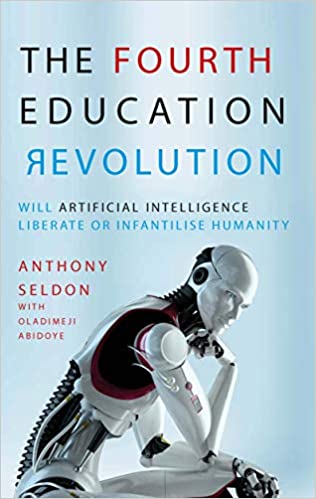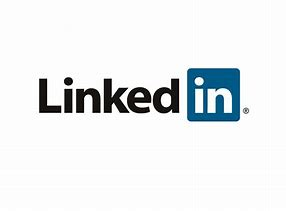15 Ways to Reimagine Education
14: Equip Students with the Skills Needed for Adulthood and the Workplace.
Researchers at The Health Foundation have found evidence of a rising pressure on academic performance in schools, with insufficient focus on real work experience and practical life skills.

Following the publication of their 2019 report, A Healthy Foundation for the Future (which you can read in our Research section), The Health Foundation is calling for education providers to ensure that they equip young people with the essential skills they need to prepare them for the transition into adulthood.
Many other researchers, parents and professionals feel the same. They are saying that skills in emotional literacy and mental health and learning in a democratic, respectful environment are as important, if not more so than academic test results. Equally, there is a growing need for people skills, confidence and creativity.
Business Leaders Question Whether Students are Prepared for Work

Top companies like Apple, Google, and Netflix don’t require employees to have degrees, and this could soon become an industry norm, says business news website, Business Insider.
Apple CEO, Tim Cook says that many colleges do not teach the skills business leaders need most in their workforce.

Facebook have also said that grades aren’t everything and that people who can display their skills by building real things beyond classroom projects are frequently the stronger candidates:
“It would be we weird for us to require a college degree [Facebook founder, Mark Zuckerberg himself is a college drop-out]. If you can build awesome stuff and have big impact, that’s all we’re really looking for.”
Facebook recruiter, Will Barnett
Similarly, Sir Richard Branson announced in 2019 that The Virgin Group – which employs over 70,000 people in businesses ranging from gyms to space tourism – will no longer be asking job candidates about their exam results:

“The Virgin Group will not ask anyone for their exam results ever again. Exams, designed to test many of these skills [reading, memory abilities and time management], might become irrelevant. It is not just employers that will be forced to change, but schools too. If everybody didn’t ask for exam results I think schools would be different places.”
The Virgin Group
The Need for People Skills, Soft Skills (or rather, “Essential Skills”)
Dr Grace Lordan, a behavioural scientist, economist and associate professor at the London School of Economics, in this film, says:
“Economists have known for a number of years now that soft skills (character and health) leave a long arm on adult outcomes, including traditional labour force outcomes – income and educational attainment.
I study the 4th industrial revolution. I am interested in the type of skills that are going to still be needed in a decade’s time, given what is coming from big firms. People skills, emotional intelligence, character skills are absolutely what is going to be needed by children.
Soft skills are increasingly in demand in the labour market given that these skills are not readily substituted with technology.”
Dr Grace Lordan

Credit: UK Government / OGL v1.0 (http://NationalArchives.gov.uk/doc/open-government-licence/version/1/)
Sir Anthony Seldon also made an impassioned defence of soft skills in education recently.
Speaking at the 2019 Organisation for Economic Cooperation and Development’s (OECD) launch of the results of the Programme for International Student Assessment (Pisa) the former head teacher at leading independent school, Wellington College argued that English education policies were failing large proportions of pupils, teachers and university students. He said:
“One third – 30 per cent – of British school leavers are failed by the system. They are told that they are failures! You tell anybody that ‘you’re a failure’, and they become one.
Is it surprising they turn to crime, they have very low self-esteem, they have mental health problems? They are not the failures; the system has failed them – failed to find out what they uniquely can contribute to the world and be successes at.”
Sir Anthony Seldon

You can read more about this in Sir Anthony Seldon’s book, ‘The Fourth Education Revolution’. It is a call to educators everywhere to open their eyes so that we can begin shaping the future of education around the world:
“Britain and the US have an excellent education system in their schools and universities… but it is tailored to the twentieth century. The factory mass teaching methods of the last educational era have failed to conquer enduring problems of inequity and unfairness. Students have to make progress at a set rate which can demotivates and bore some. Will the AI revolution be able to remedy these problems?
This extended thesis explores the history of education, the many different styles of education and the different types of intelligence for which current teaching methods are unable to provide any support.”
Author and teacher, Trevor Muir has written a powerful piece on the importance of soft skills, such as collaboration, critical thinking, confidence, creativity. He says:
“These are what we in the education world call ‘soft skills’.
They’re secondary to the ‘essential’ work of school, which is English, math, science, history, algebra, British Literature, the starting and end date of the French Revolution, what an igneous rock is – you get the point.
I think it’s time we stop calling them soft skills… We need to call them what they really are: essential skills; skills that are absolutely necessary to thrive in the modern world.”
Trevor Muir

Confidence Engaging with Authority Figures
Research carried out by Gray and Chanoff (American Journal of Education, 1986) found that students educated in a democratic setting, where they were treated as equals to staff, lacked fear of authority figures in life after school.
They reported that they had good relationships with professors at university and with employers at work. They communicated easily with them and had no difficulty asking for help or advice when needed.
Their conventional schooled peers however felt a tremendous gap between themselves and authority figures which suggests that school isn’t preparing students adequately for adult life.

The Need for Creativity
According to an IBM survey of more than 1,500 chief executives from 60 countries and 33 industries worldwide, creativity is the skill most needed for facing 21st century business challenges. Creativity ranked above rigor, management discipline, integrity and vision (Source:- IBM 2010 Global CEO Study: Creativity Selected as Most Crucial Factor for Future Success).
Meanwhile, business leaders and educationalists are reporting that schools are actually inhibiting creativity. This is a huge concern for employers now and in the future.

More recently, LinkedIn carried out some employer analysis. They used exclusive LinkedIn data to determine the skills companies would need most in the year ahead (2019). In accord with the findings from IBM, they confirmed that creativity topped the list of desired attributes. Read more at the LinkedIn Learning Blog.

These results are also in line with the World Economic Forum’s Future of Jobs report, which concluded that human skills, like originality, initiative and critical thinking are likely to increase in value as technology and automation advances.
“Strengthening a soft skill is one of the best investments you can make in your career, as they never go out of style. Plus, the rise of AI is only making soft skills increasingly important, as they are precisely the type of skills robots can’t automate.”
LinkedIn Learning Editor, Paul Petrone
The Need for Self-Direction and Self Managed Learning
Derry Hannam, a retired deputy head teacher and school inspector is calling for 20% of students’ time in school to be spent following their own interests. He his article, “The 20% Project for Schools – A Modest Proposal”, Hannam states:
“Companies such as the conglomerate SEMCO in Brazil or the Scot Bader Commonwealth paint company in the UK have for many years used company training programmes to encourage employees to widen and deepen their learning following their own personal passions and interests.
More to the point, for more than 70 years, 3M’s unique 15% Culture has encouraged employees to set aside a portion of their WORK TIME to proactively cultivate and pursue innovative ideas that excite them.
Drawing on the 3M philosophy, Google has introduced its ‘20% Project’ where employees are encouraged to follow their own ideas beyond their actual job descriptions for 20% of their paid work time. This has led to some of the most profitable of Google’s innovations such as Gmail and Adsense.
Derry Hannam
Hannam asks if it, at last, the natural learning potential of young people will come into alignment with the future requirement for collaborative and creative innovators. “Could schools become places that nurture the social and economic entrepreneurs that the world needs, capable of facing up to the challenges confronting us? Let’s hope so!”
One school which already takes a self-directed approach is the online school, Omnis Education. You can watch an interview with the founders of Omnis that we held in our Progressive Education Group on Facebook in March 2022, which looked at ‘preparing learners for the world of work: why school isn’t and what to do instead’:
Dr Ian Cunningham calls for employers to get involved. The author of Self Managed Learning and the New Educational Paradigm says:
“Every survey of employers in the UK in the last 20 years has come up with major criticisms of the educational system with demands for better teamwork, better creativity, more self managing capability and so on.”
Dr Cunningham says that if we need the qualities that employers are looking for, we have to have a process which matches that, and one not based around making young people regurgitate facts in order to pass tests/exams. And he offers an alternative. For the last 20 years he’s been running the Self Managed Learning College in Sussex, where there are no classrooms, no teachers, no imposed curriculum and no imposed timetable. His article gives examples as to how it works, as does his latest book. And if educators are inspired to try it out they can find out more in our Schools Support section.
Further Reading on Why Progressive Alternatives are Needed
Please visit 15 Ways to Reimagine Education

